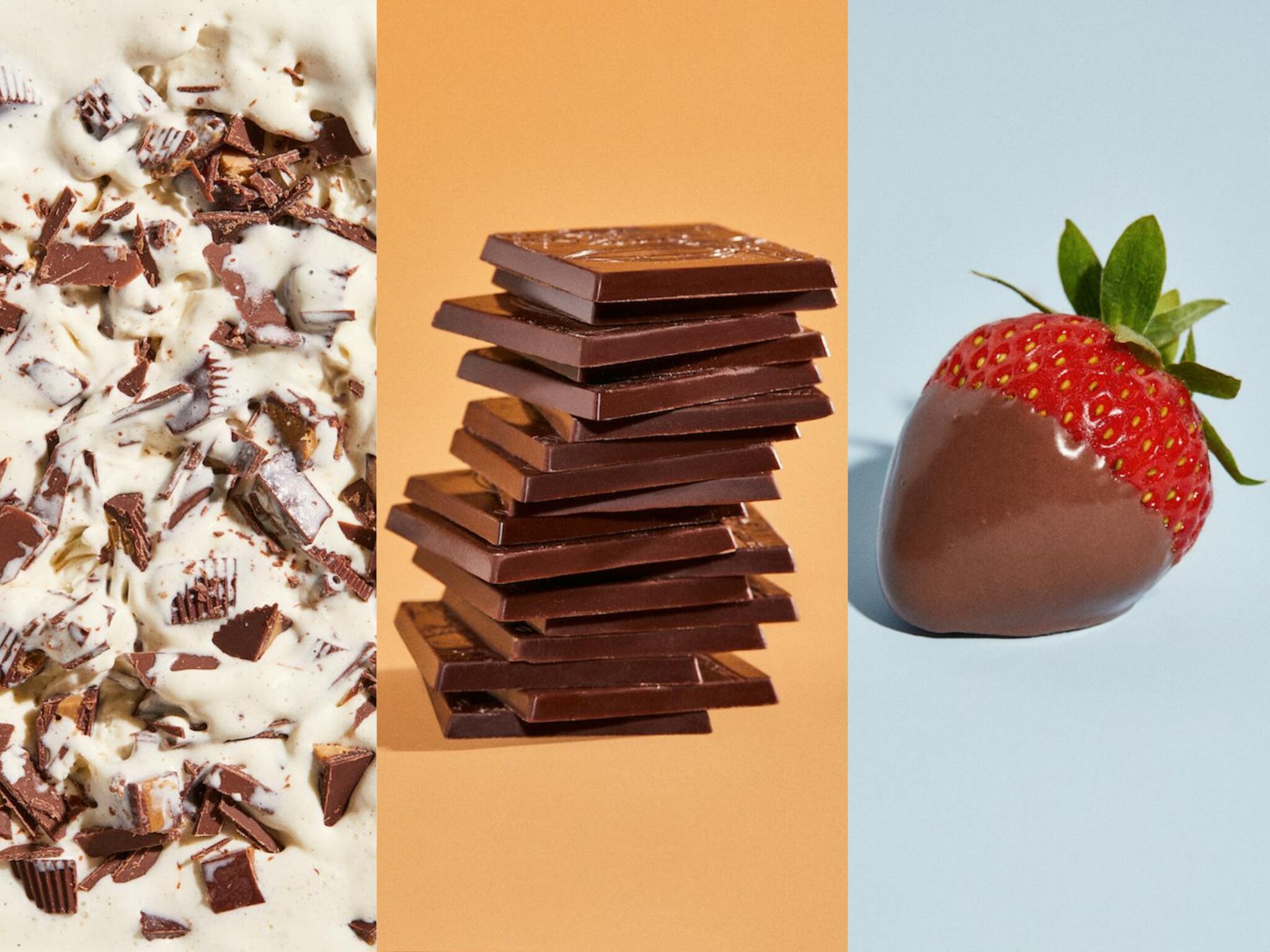Voyage Foods Secures $22M in Funding, as LCA Claims It Makes the ‘Most Sustainable Chocolates Ever’
5 Mins Read
Californian CPG startup Voyage Foods, which makes ethical and eco-friendly pantry staples, has raised $22M in funding, and released the results of a life-cycle assessment that shows its cocoa-free chocolate produces up to 88% fewer GHG emissions from land use change than its conventional counterpart.
With a burgeoning portfolio of nut-free spreads, cocoa-free chocolate and bean-free coffee, Voyage Foods is doubling down on its eco credentials and potential with an independent life-cycle assessment (LCA) and $22M in funding, which brings total investment in the startup to $64M.
Participants in the latest funding round included Valor Equity Partners, Horizons Ventures, UBS O’Connor, and Level One Fund, among others. Voyage Foods – which sells nut-free hazelnut and peanut butters in over 1,400 retail locations, alongside cocoa-free chocolate for B2B partners and beanless coffee for foodservice – plans to use the capital to scale up manufacturing and develop and launch new products to the market.
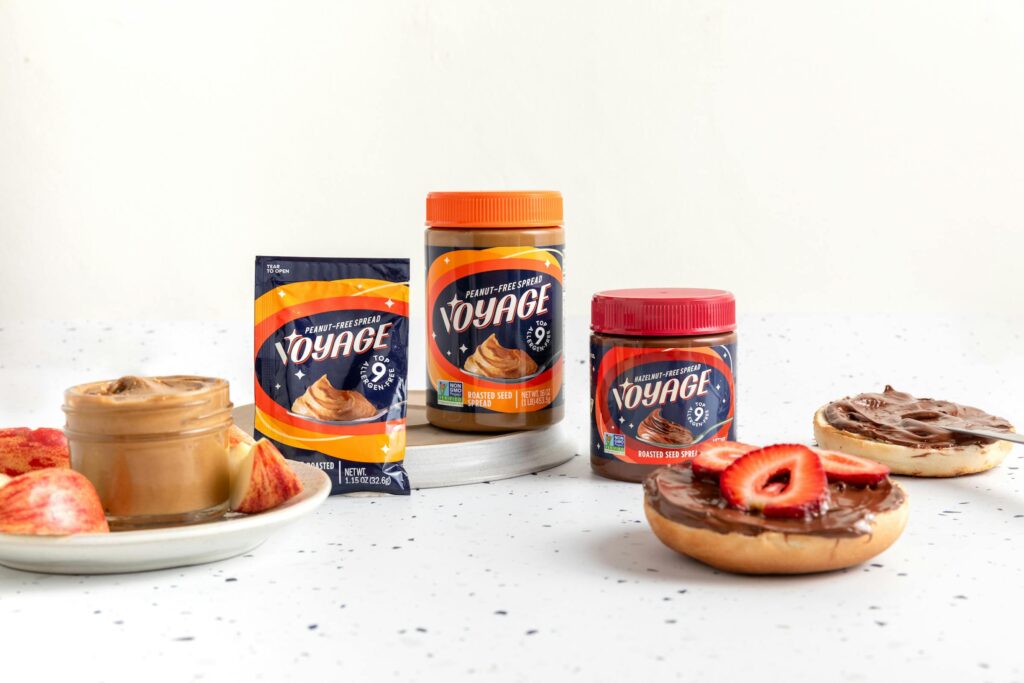
Focusing on the chocolate alternative – made from a blend of grape seeds, sunflower protein, RSPO-certified palm oil and shea kernel oil – it commissioned ESG consulting agency Sphera to conduct a third-party validated, ISO-compliant LCA of its ingredient. The LCA claims Voyage Foods’ vegan milk and semi-sweet chocolate alternatives are “the most sustainable chocolates ever to come to market”.
How sustainable is cocoa-free chocolate?
The LCA reveals that the global warming potential (GWP) over 100 years for Voyage Foods’ cocoa-free milk and semi-sweet chocolates is 3.4kg and 3.25 CO2e per kg on average, respectively (depending on whether it’s made with shea butter or palm oil), versus 10kg and 8kg of CO2e per kg of conventional milk and semi-sweet varieties.
Electricity generation during manufacturing contributes to 59% of Voyage Foods’ carbon footprint, while the upstream burden of key feedstock to the process – shea butter, palm oil, and sugar – is responsible for a further 33%. As for conventional chocolate feedstock and raw materials make up 77% of the GWP on average, with the main material inputs being skimmed milk powder in milk chocolate (51%) and cocoa liquor in semi-sweet (65%).
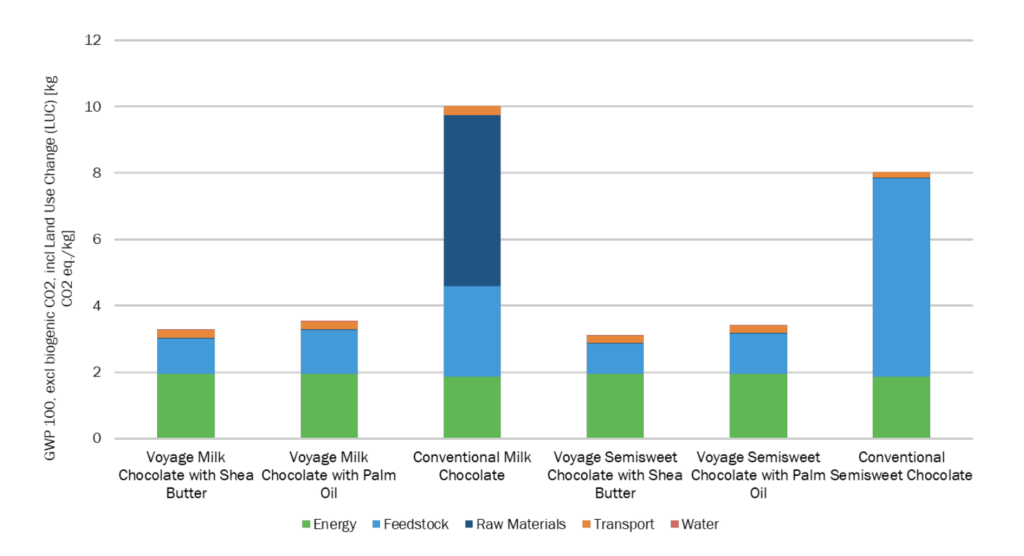
Sphera found that Voyage Foods’ non-dairy milk chocolate produces 66% fewer GHG emissions from land use change and 84% fewer emissions overall compared to its conventional counterpart, while the cocoa-free semi-sweet chocolate reduces land use change emissions by 88% and overall GHG emissions by 81%.
If just 5% of the world switched to Voyage’s chocolates, it would be the equivalent of saving emissions from between 1.5 and 1.8 million cars annually. The results are even starker for blue water consumption, with Voyage Foods’ chocolates using 99% less water. It’s like saving between 500,000 and 1.2 million Olympic-sized swimming pools’ worth of water (if 5% of the population swapped conventional for cocoa-free chocolate).
The LCA suggested that even if the electricity requirements of manufacturing regular milk chocolates are halved and Voyage Foods’ versions are doubled, the former would still have a 58% higher GWP than the latter. When relying solely on wind power, the cocoa-free vegan milk chocolate will see its GWP results decrease by 53-58%, and the semi-sweet option by 55-61% (based on the use of palm or shea fats). It means Voyage Foods’ offerings will have a four to six times lower GWP than conventional chocolates if both are produced by wind power, versus 2.8 times if using non-renewable energy sources.
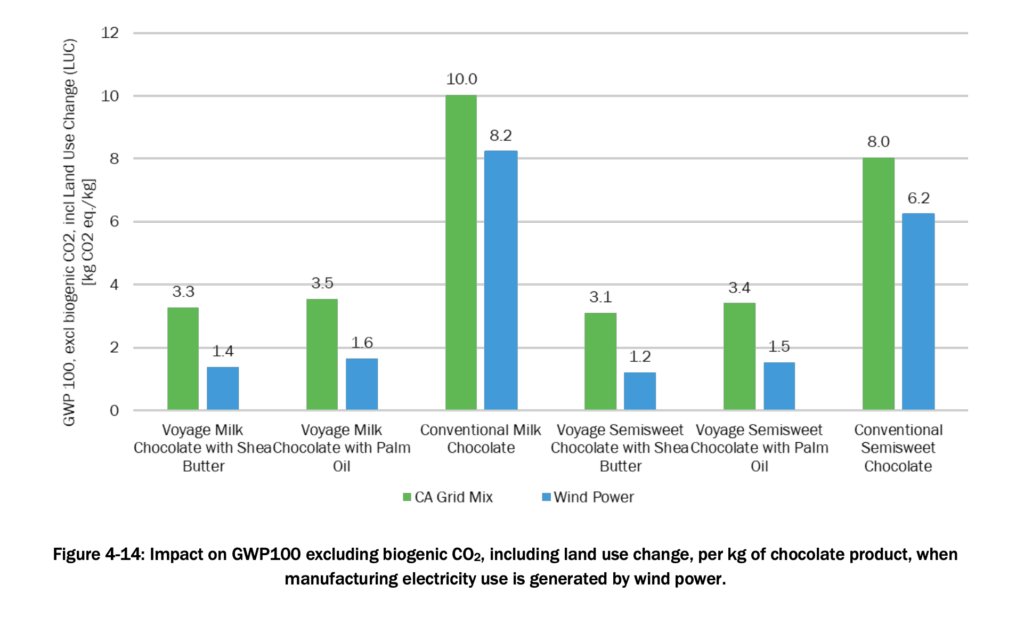
Why chocolate alternatives like Voyage Foods are important
As food commodities go, cocoa and chocolate are up there with the most problematic. Dark chocolate is the second-worst food (after beef) when it comes to supply chain emissions, while cocoa beans have one of the highest carbon opportunity costs, which is the amount of carbon lost from native vegetation and soils to produce food.
Chocolate is also linked to mass deforestation, thanks in large part to the widespread use of palm oil (which is part of Voyage Foods’ ingredients too, albeit one certified by the RSPO). In fact, the EU banned cocoa and chocolate linked to deforestation in June last year, while in the US, the Biden administration was sued in August to block imports of cocoa harvested by children in West Africa.
Plus, scientists have warned that cocoa trees are threatened – and a third of them could die out by 2050 – which could lead to a global chocolate shortage. This makes alternatives like the ones from Voyage Foods vital, and their sustainability credentials even more so.
“We are focused on addressing the environmentally harmful aspects of the chocolate industry and creating more sustainable, scalable, delicious counterparts,” said Voyage Foods co-founder and CEO Adam Maxwell. “Whether you’re looking at water use, land use, greenhouse gas emissions or deforestation, it’s clear that the production of traditional chocolate is problematic – and our cocoa-free chocolate is a much-needed solution.”
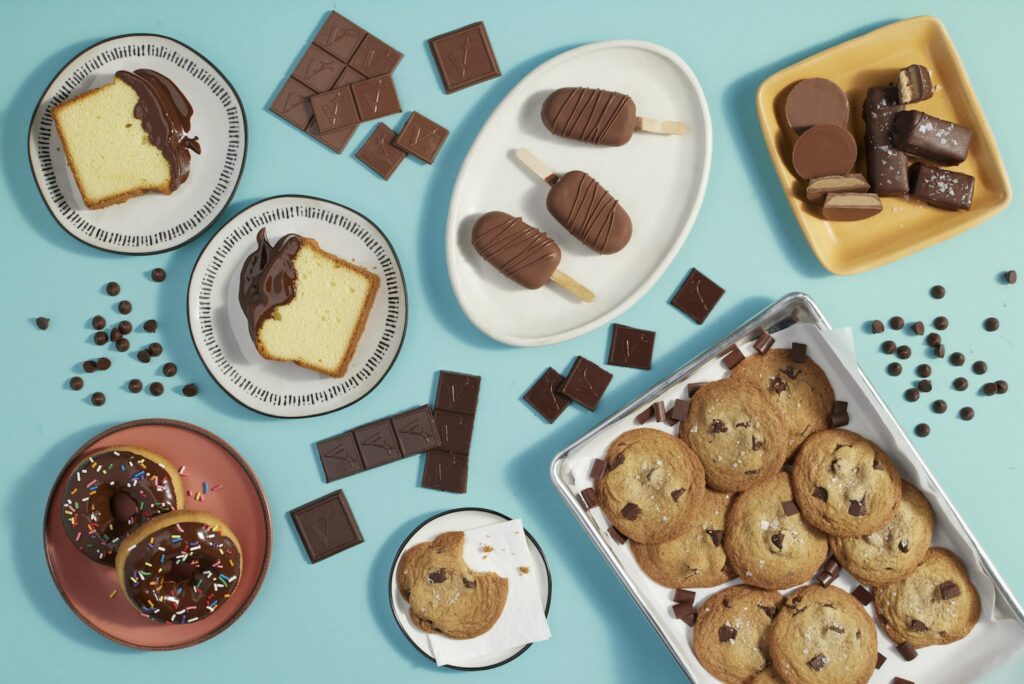
In 2023, the price of bulk cocoa rose to its highest in 50 years, as the commodity went through a 150 million lb global shortage. Voyage Foods says it provides manufacturers with supply chain and price stability that enables better margins, thanks to the use of cost-effective upcycled ingredients that are scalable.
This also allows CPG partners to provide consumers with eco-friendly, ethical chocolate with fair and stable prices, as Maxwell explained: “We’re proposing that food companies can make more sustainable and ethically sourced products at a cost that on the industrial side is significantly less than current alternatives.”
Other cocoa-free chocolate innovators include London-based WNWN Food Labs, Germany’s ChoViva – both brands conducted LCAs that revealed their chocolates emit 90% fewer greenhouse gases than conventional chocolate – and Italian startup Foreverland.


